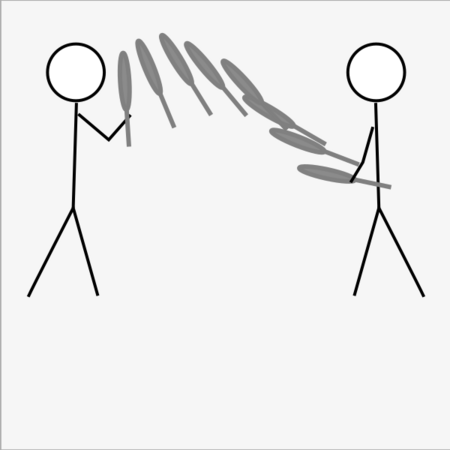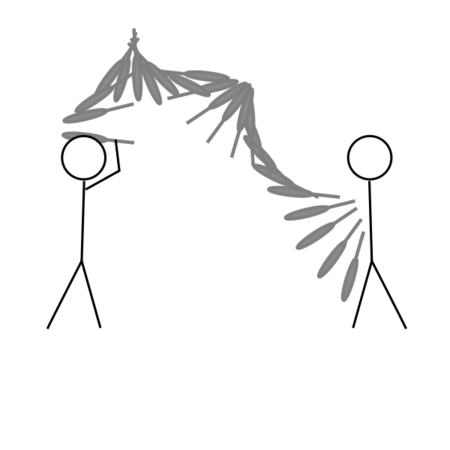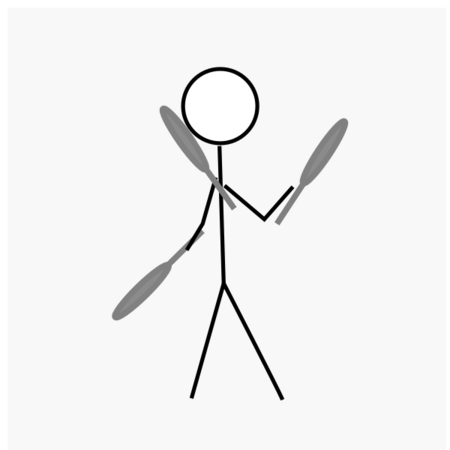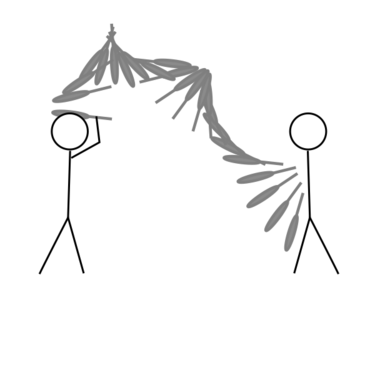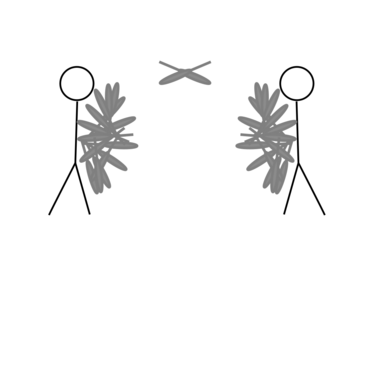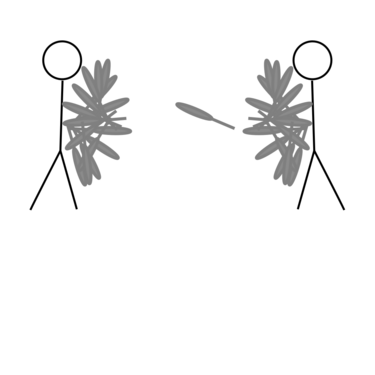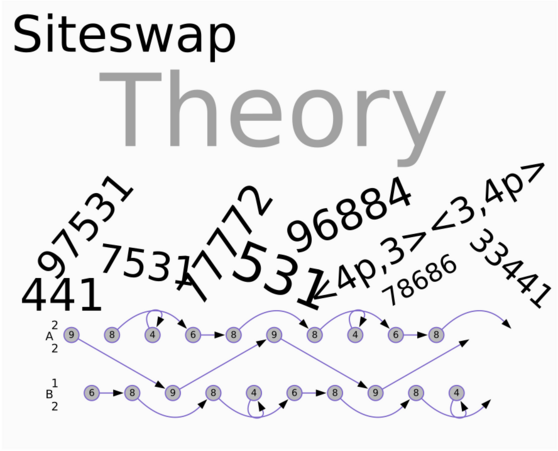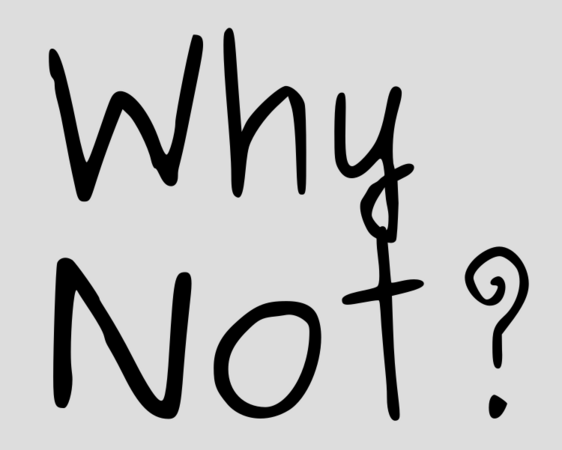Main Page: Difference between revisions
No edit summary |
No edit summary |
||
| Line 26: | Line 26: | ||
These patterns are suitable for beginners. It helps a lot if one juggler is more experienced and can throw very nice, high and slow passes. All patterns only use one throw type (on the beginner side). Note that being suitable for beginners does not in all cases mean that these patterns are easy if you already have experience passing clubs in e.g. 4-count, 3-count, 2-count. These patterns tolerate much faster and lower passes than the patterns here. Also, the pattern sequences here will often feel complex if you only did a lot of n-count type patterns until you get used to them. |
These patterns are suitable for beginners. It helps a lot if one juggler is more experienced and can throw very nice, high and slow passes. All patterns only use one throw type (on the beginner side). Note that being suitable for beginners does not in all cases mean that these patterns are easy if you already have experience passing clubs in e.g. 4-count, 3-count, 2-count. These patterns tolerate much faster and lower passes than the patterns here. Also, the pattern sequences here will often feel complex if you only did a lot of n-count type patterns until you get used to them. |
||
<gallery heights=300px widths=300px mode="packed-overlay"align="left"> <!--mode="packed-hover"--> |
<gallery heights=300px widths=300px mode="packed-overlay" align="left"> <!--mode="packed-hover"--> |
||
image:one-zap2.svg | link=Beginning Zaps | <font size=+1> Beginning Zaps</font> |
image:one-zap2.svg | link=Beginning Zaps | <font size=+1> Beginning Zaps</font> |
||
image:one-pass-notext.svg | link=Beginning Single Passes | <font size=+1> Beginning Single Passes</font> |
image:one-pass-notext.svg | link=Beginning Single Passes | <font size=+1> Beginning Single Passes</font> |
||
Revision as of 11:14, 15 January 2025
The goal of this wiki is to provide a collection of juggling patterns, organized into "learning paths" that contain patterns of increasing difficulty.
The wiki tries to answer the question:
and also:
There are many other juggling resources, but most of them do either provide no difficulty rating - or neglegt that there is more than one type of difficulty that a juggling pattern can have. Here, I tried to group patterns with common traits and also a common set of difficulty-types.
Entry points are provided for each type of throw, as each kind of throw needs a different throwing technique.
These entry points are labeled as "Beginning with [...]" and primarily focus on building proficiency with a single throw type before progressing to more complex patterns that incorporate multiple throw types.
Entry Patterns
These patterns are suitable for beginners. It helps a lot if one juggler is more experienced and can throw very nice, high and slow passes. All patterns only use one throw type (on the beginner side). Note that being suitable for beginners does not in all cases mean that these patterns are easy if you already have experience passing clubs in e.g. 4-count, 3-count, 2-count. These patterns tolerate much faster and lower passes than the patterns here. Also, the pattern sequences here will often feel complex if you only did a lot of n-count type patterns until you get used to them.
Single-Passes // Zaps
Theory
Double Passes
Heffs (Double Selfs)
Other Juggling Resources
Unfinished
Todo main page overview of unwritten pages
